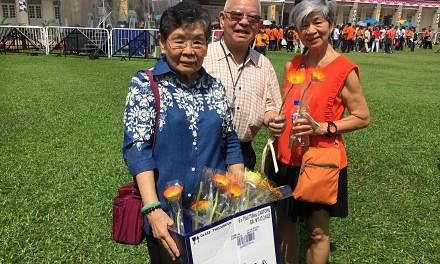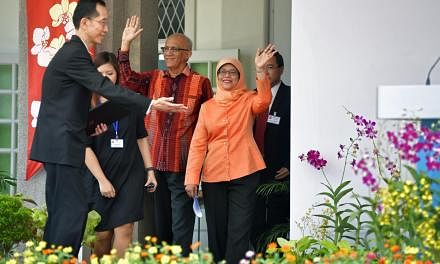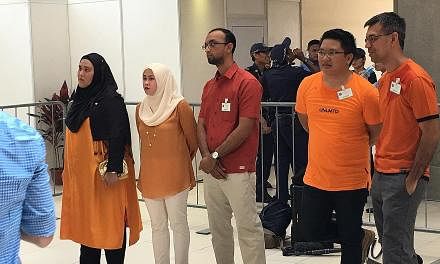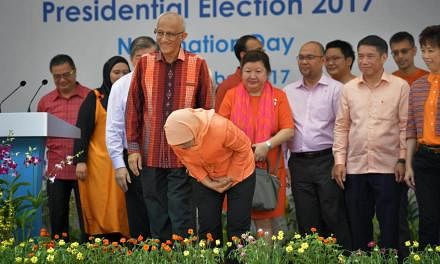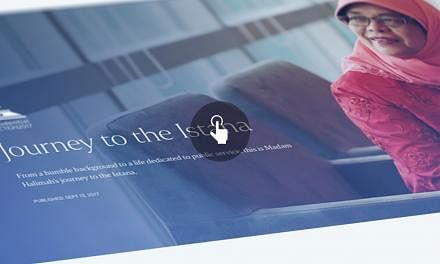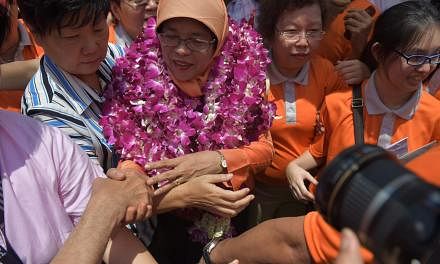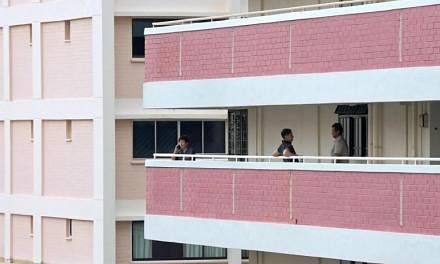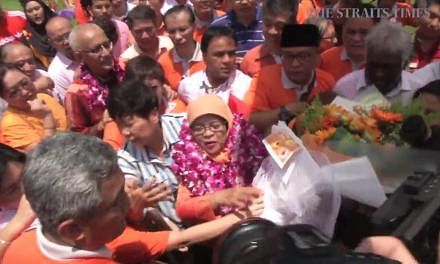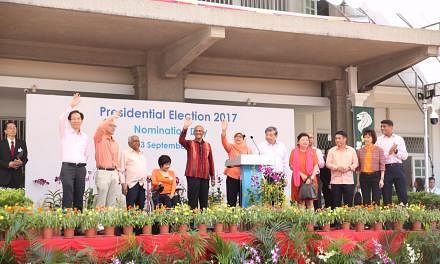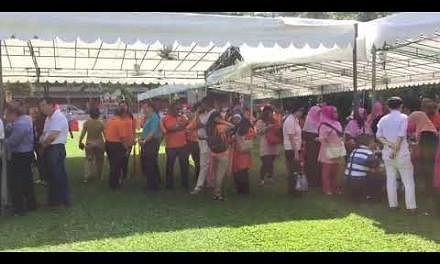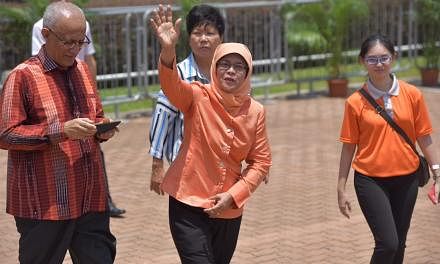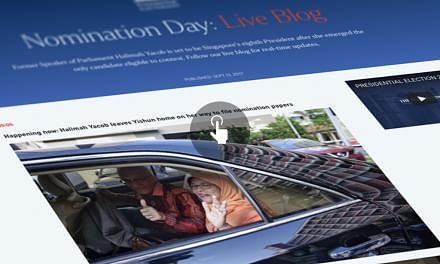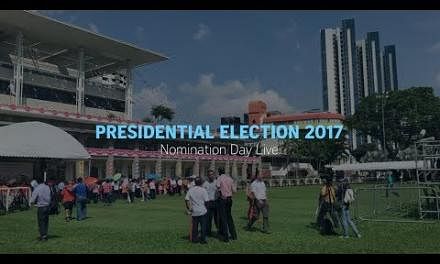In the end, Madam Halimah Yacob won the presidential election in a walkover, without any need to campaign and fight for votes.
But the run-up to yesterday was still bruising, with some Singaporeans using hashtags like #notmypresident and #hardlymahpresident - a pun on her name - to protest against not being able to vote.
Asked by reporters yesterday if she was ever demoralised during the process, she said that years of public service had taught her to focus on her goals and objectives - the most important being to improve the lives of people.
"You focus on the people you want to serve. That has always been my motto," she said without betraying any emotion about the online vitriol directed at her.
"I focus on how to improve their lives, whether by introducing programmes or helping them, and that will continue to be my emphasis."
Madam Halimah, 63, was the only candidate given the green light to contest the election reserved for candidates from the Malay community. She qualified on account of having held the post of Speaker of Parliament since 2013.
Two other hopefuls - marine services firm chairman Farid Khan, 61, and property company chief executive Salleh Marican, 67 - did not qualify. Neither had run a company with $500 million in shareholder equity for the most recent three years, a key threshold for private- sector candidates.
The uncontested election sparked criticism from some Singaporeans, who took to social media to express their disappointment.
Facebook user Melanie Felicia, commenting on The Straits Times' Facebook page, said: "We weren't even given any chance to vote, so what election?"
While three of the five presidential elections so far have been walkovers, analysts say the anger this time could stem from politics becoming more contentious.
National University of Singapore sociology professor Tan Ern Ser said this was further fanned by social media. "We haven't quite established a stable social compact in the post-Lee Kuan Yew era."
A pervasive view among critics was that fair competition had been made impossible by recent constitutional changes to raise the eligibility criteria for candidates, and to reserve elections for a racial group not represented in the presidency for a period of time.
Twitter user Darryl Kang charged that the Government made so many changes to the Constitution so as to allow Madam Halimah to run uncontested.
Political scientist Lam Peng Er said some Singaporeans, rightly or wrongly, saw the changes as an attempt to block former MP Tan Cheng Bock from running.
Dr Tan narrowly lost the 2011 presidential election to former president Tony Tan Keng Yam in a four-way race. Prior to the 2017 contest being declared a reserved election, he said that he intended to run again.
Yesterday, Dr Tan Cheng Bock congratulated Madam Halimah in a Facebook post, but added that she will "occupy the most controversial presidency in the history of Singapore".
Dr Tan, who unsuccessfully challenged the timing of the reserved election in court, said: "Everyone knew Madam Halimah would win. Still, we looked forward to a poll to tell the Government what we thought about the election."
He added: "We did not get a chance to speak with our vote this round, but the time will come."
Dr Lam, a senior research fellow at the East Asian Institute, said the ruling People's Action Party was aware that it may have to "pay a political price", a point Minister in the Prime Minister's Office Chan Chun Sing noted during a forum last week on the elected presidency.
Many online critics were not upset with Madam Halimah, but were unhappy with the state of affairs.
A Facebook user by the name of William wrote in The Straits Times Facebook page: "I have no issues with her as a person, but I don't like how she was 'put on the throne' by you- know-who. I don't care what race, religion, gender my president is as long he or she (wins) the presidency fair and square."
Others, like Ms Michelle Tan, urged people to move on from the "unpleasant" election and to "stop using words that hurt not only Madam Halimah and her family, but the nation as a whole".
NUS' Prof Tan said Madam Halimah had "become collateral damage of sorts". "People are not angry with her, but with the new rules."
But, he added, "given her personality and public persona, and if she uses her influence to contribute to enhancing the well-being of Singaporeans, she would make her mark as president".
And while there was little she could do to "heal" divisions, she had "already set the right tone by saying that she would be the president of all Singaporeans".
Dr Lam hoped "some good will come out of this despite reservations and people questioning the Government's motivations".
Having Madam Halimah, who is from a minority community and wears a tudung, "sends a signal to our neighbours that Singapore is a bona fide multicultural society".
"We should wish her all the best and keep an open mind," he added.



